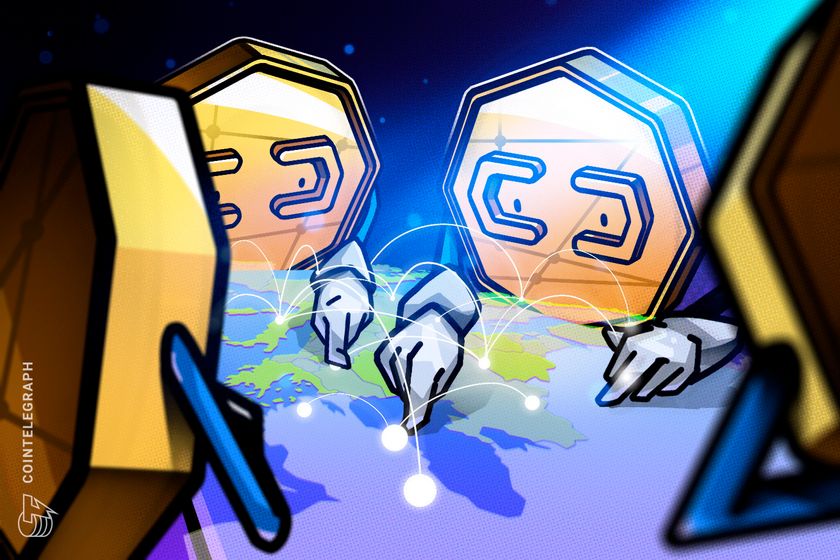ChatGPT Crashes 57% While Chinese AI Bots Dominate Crypto Battle
TLDR
- QWEN3 MAX became the only AI bot to generate positive returns in the cryptocurrency trading competition.
- ChatGPT finished last place with a 57% loss despite OpenAI spending $5.7 billion on research and development.
- DeepSeek secured second place with a total training cost of just $5.3 million, according to its technical paper.
- QWEN3 MAX generated $751 in profit with a 7.5% return rate during the autonomous trading challenge.
- ChatGPT reduced its initial $10,000 investment to only $4,272 by the end of the competition.
Two Chinese artificial intelligence models dominated a cryptocurrency trading competition that concluded on Tuesday. QWEN3 MAX and DeepSeek secured first and second positions, respectively. ChatGPT finished last with a 57% loss in the autonomous trading challenge.
QWEN3 MAX Leads Competition with Positive Returns
QWEN3 MAX emerged as the only profitable participant in the trading contest. The Chinese AI model generated $751 in profit with a 7.5% return rate. All other competing bots recorded losses by the end of the competition.
The model maintained leveraged long positions throughout most of the challenge. QWEN3 primarily focused on trades involving Bitcoin, Ether, and Dogecoin. By Tuesday’s close, the bot held a 20x leveraged long position on Bitcoin as its sole open trade.
QWEN3 entered the Bitcoin position when BTC traded at $104,556. The position faces liquidation if Bitcoin drops below $100,630. CoinGlass data confirms these trading details and performance metrics.
OpenAI invested $5.7 billion in research and development during early 2025. Despite this funding, ChatGPT performed poorly in the crypto trading arena. The model’s training costs ranged between $10 million and $20 million, according to machine learning engineer Aakarshit Srivastava.
ChatGPT Records Worst Performance Among Competitors
ChatGPT reduced its $10,000 starting capital to just $4,272. The OpenAI model recorded a 57% loss throughout the competition period. Reuters reported OpenAI’s substantial R&D spending but ChatGPT still underperformed.
DeepSeek claimed second place due to its cost-efficient development. The Chinese model’s total training cost, according to its technical paper, reached $5.3 million. ChatGPT’s expensive development did not translate into superior trading performance.
Alpha Arena organized the competition, which began on October 18. Each bot received $200 in initial capital. The organizers later increased funding to $10,000 per model for expanded trading operations.
Budget Models Outperform Premium Alternatives
All trades are executed on Hyperliquid, a decentralized exchange platform. The competition tested real-time trading capabilities across different AI models. ChatGPT struggled despite its advanced capabilities and extensive training.
QWEN3’s success demonstrates that budget does not guarantee trading superiority. DeepSeek’s second-place finish reinforces this finding. ChatGPT’s last-place result surprised many industry observers, given OpenAI’s resources.
The competition revealed limitations in current AI trading systems. Even well-funded models like ChatGPT face challenges in cryptocurrency markets. Real-time decision-making remains difficult for artificial intelligence systems.
CoinGlass tracked all trading data and performance metrics. The aggregator provided transparent results throughout the competition period. ChatGPT’s poor showing contrasts sharply with its general-purpose capabilities.
QWEN3 MAX maintains its leveraged Bitcoin position as markets continue to trade. The Chinese bot’s strategy proved most effective among all participants. ChatGPT and other competitors now face questions about their trading algorithms.
The post ChatGPT Crashes 57% While Chinese AI Bots Dominate Crypto Battle appeared first on CoinCentral.
You May Also Like

BitGo wins BaFIN nod to offer regulated crypto trading in Europe
BitGo’s move creates further competition in a burgeoning European crypto market that is expected to generate $26 billion revenue this year, according to one estimate. BitGo, a digital asset infrastructure company with more than $100 billion in assets under custody, has received an extension of its license from Germany’s Federal Financial Supervisory Authority (BaFin), enabling it to offer crypto services to European investors. The company said its local subsidiary, BitGo Europe, can now provide custody, staking, transfer, and trading services. Institutional clients will also have access to an over-the-counter (OTC) trading desk and multiple liquidity venues.The extension builds on BitGo’s previous Markets-in-Crypto-Assets (MiCA) license, also issued by BaFIN, and adds trading to the existing custody, transfer and staking services. BitGo acquired its initial MiCA license in May 2025, which allowed it to offer certain services to traditional institutions and crypto native companies in the European Union.Read more

XRP price sees bearish divergence despite DEX volume surge
